Our people
Jonas Philanthropies is led and supported by leaders and experts from the worlds of healthcare, business, philanthropy and education
Our board
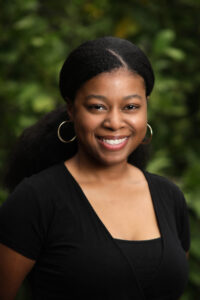 Jazmine works at the intersection of social and environmental justice. Her mission is to bring more knowledge, clarity, and harmony to the world and does this by working with various organizations that center this at their core. She’s a Program Manager at the J.E.D.I Collaborative and is a consultant at LIFT Economy where she co-leads and co-developed a global tree growing campaign centering frontline communities. Jazmine also helps people think systemically and embrace design science to bring forth regenerative solutions for society & the earth’s ecosystems at the Buckminster Fuller Institute. https://www.linkedin.com/in/jazmine-cable/
Jazmine works at the intersection of social and environmental justice. Her mission is to bring more knowledge, clarity, and harmony to the world and does this by working with various organizations that center this at their core. She’s a Program Manager at the J.E.D.I Collaborative and is a consultant at LIFT Economy where she co-leads and co-developed a global tree growing campaign centering frontline communities. Jazmine also helps people think systemically and embrace design science to bring forth regenerative solutions for society & the earth’s ecosystems at the Buckminster Fuller Institute. https://www.linkedin.com/in/jazmine-cable/
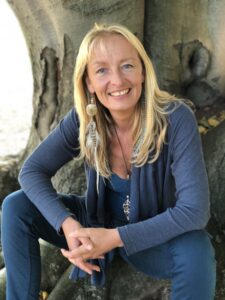 Clare Dubois is the founder and CEO of TreeSisters.org, a global women’s movement spanning multiple countries, that has collectively funded the planting of over 15 million trees. TreeSisters is a social change movement and a tropical reforestation organization working towards normalizing cultural reciprocity with nature. The aim of both Clare and TreeSisters is to make it as normal to give back to nature as it currently is to take nature for granted, while supporting humanity in its transition from a consumer species to a restorer species. Before founding TreeSisters, Clare worked internationally for over two decades, coaching business leaders and facilitating group behavior change processes in multiple sectors. Known for her direct, catalytic energy, her inspirational speaking and her holistic approach to collective transformation, Clare is a walking invitation to anyone ready to step up and step in on behalf of the planet.
Clare Dubois is the founder and CEO of TreeSisters.org, a global women’s movement spanning multiple countries, that has collectively funded the planting of over 15 million trees. TreeSisters is a social change movement and a tropical reforestation organization working towards normalizing cultural reciprocity with nature. The aim of both Clare and TreeSisters is to make it as normal to give back to nature as it currently is to take nature for granted, while supporting humanity in its transition from a consumer species to a restorer species. Before founding TreeSisters, Clare worked internationally for over two decades, coaching business leaders and facilitating group behavior change processes in multiple sectors. Known for her direct, catalytic energy, her inspirational speaking and her holistic approach to collective transformation, Clare is a walking invitation to anyone ready to step up and step in on behalf of the planet.
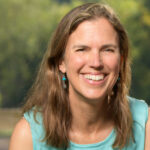 Karen Holl has studied how to restore both tropical and temperate forests for nearly three decades. She oversees a long-term tropical forest restoration study in southern Costa Rica and has worked with students and collaborators on forest restoration in Mexico, Brazil, Colombia, Panama, and the United States. She advises numerous land management and conservation organizations in California and internationally with the aim of improving the success of ecological restoration efforts. She is the author of Primer of Ecological Restoration published in 2020 by Island Press and was the 2017 co-winner of the Theodore Sperry Award for innovative restoration research from the Society for Ecological Restoration.
Karen Holl has studied how to restore both tropical and temperate forests for nearly three decades. She oversees a long-term tropical forest restoration study in southern Costa Rica and has worked with students and collaborators on forest restoration in Mexico, Brazil, Colombia, Panama, and the United States. She advises numerous land management and conservation organizations in California and internationally with the aim of improving the success of ecological restoration efforts. She is the author of Primer of Ecological Restoration published in 2020 by Island Press and was the 2017 co-winner of the Theodore Sperry Award for innovative restoration research from the Society for Ecological Restoration.
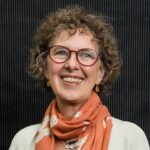 Dr. Sattler is a founding and active member of the Alliance of Nurses for Healthy Environments, an international organization that is helping to integrate environmental health, including climate change, into nursing education, practice, research, and policy/advocacy.
Dr. Sattler is a founding and active member of the Alliance of Nurses for Healthy Environments, an international organization that is helping to integrate environmental health, including climate change, into nursing education, practice, research, and policy/advocacy.
While at the University of Maryland, where she was on faculty for 25 years, she directed the Maryland Hospitals for Healthy Environments, a 10-year statewide initiative that helped hospitals develop sustainable policies and practices to achieve the triple bottom line of employee health, patient health, and ecological health. She also helped to bring local, sustainable, healthy foods to Maryland’s hospitals. She has been an advisor to the US EPA’s Office of Child Health Protection and the National Library of Medicine for informational needs of health professionals on environmental health.
Dr. Sattler helped to found Health Care Without Harm, a national organization focused on greening the health care sector. She is the author of Environmental Health and Nursing, and many peer-reviewed articles. Dr. Sattler is a Registered Nurse with an MPH and DrPH from the Johns Hopkins School of Public Health. She is a Fellow in the American Academy of Nursing.
 Born in the state of New Mexico, James grew up with a passion to help indigenous communities across the country. As a first generation college graduate with an Agricultural Business degree from Colorado State University, James strives towards educating others about the importance of higher education and self-identity. James joined Trees, Water, & People as the National Program Coordinator and will work closely with communities across the country on developing a plan to move their communities towards a renewable and cleaner world. As a proud indigenous community member, he understands and experienced first hand the hardships that affect indigenous communities across the country. Following his passion and spiritual education from his community elders, his vision is to educate and empower the warriors of tomorrow, all while respecting and honoring our ancestral roots.
Born in the state of New Mexico, James grew up with a passion to help indigenous communities across the country. As a first generation college graduate with an Agricultural Business degree from Colorado State University, James strives towards educating others about the importance of higher education and self-identity. James joined Trees, Water, & People as the National Program Coordinator and will work closely with communities across the country on developing a plan to move their communities towards a renewable and cleaner world. As a proud indigenous community member, he understands and experienced first hand the hardships that affect indigenous communities across the country. Following his passion and spiritual education from his community elders, his vision is to educate and empower the warriors of tomorrow, all while respecting and honoring our ancestral roots.
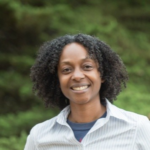 Tracey Osborne is Associate Professor at the University of California, Merced. Her research focuses on the social and political economic dimensions of climate change mitigation in tropical forests and the role of Indigenous Peoples, the politics of climate finance, global environmental governance, and climate equity and justice. She has worked on these issues globally with extensive field experience in Mexico and the Amazon.
Tracey Osborne is Associate Professor at the University of California, Merced. Her research focuses on the social and political economic dimensions of climate change mitigation in tropical forests and the role of Indigenous Peoples, the politics of climate finance, global environmental governance, and climate equity and justice. She has worked on these issues globally with extensive field experience in Mexico and the Amazon.
She also leads the Climate Alliance Mapping Project, a collaborative effort between academics, environmental non-governmental organizations, and Indigenous organizations working for a socially-just response to climate change through research, maps and digital stories. The mapping project is an initiative of the Public Political Ecology Lab, which Tracey founded and directs to support engaged scholarship by communicating environmental research to broader publics. She received her PhD from the Energy and Resources Group at the University of California, Berkeley.
 Gerardo consults throughout Mexico and Latin America on regenerative land use planning. For the last 5 years, he has been a member of the Wixarika Research Center, a non-profit that works to preserve the culture and the natural heritage of the Wixarika (Huichol) people in Mexico through regenerative development and permaculture. He Co-founded Plantum land planning and management firm, the international Apios Institute non-profit and his innovative ‘Mexquitl’ mesquite value-adding brand he is enabling more and more producers and people to become part of the regenerative agriculture future.
Gerardo consults throughout Mexico and Latin America on regenerative land use planning. For the last 5 years, he has been a member of the Wixarika Research Center, a non-profit that works to preserve the culture and the natural heritage of the Wixarika (Huichol) people in Mexico through regenerative development and permaculture. He Co-founded Plantum land planning and management firm, the international Apios Institute non-profit and his innovative ‘Mexquitl’ mesquite value-adding brand he is enabling more and more producers and people to become part of the regenerative agriculture future.
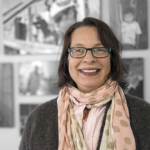 Dr. Valerie Small (Apsáalooke) is the National Director of Tribal Programs. As a ‘First Generation” student to graduate with a college degree in her family, Valerie completed her PhD in BioAgricultural Sciences & Pest Management-Weed Sciences Division from Colorado State University. Her interdisciplinary research was conducted on the homelands of the Crow Tribe of Indians focused on trees, water and the Crow People, and incorporated western science within a traditional knowledges framework. This research was essentially a vulnerability assessment of the culturally significant riparian species, Plains Cottonwood that is quickly being replaced by the invasive species Russian olive, along the Little Bighorn and Bighorn River watersheds within the exterior boundaries of the Crow Indian reservation. This research was also recently published in the recently released 4th National Climate Assessment.
Dr. Valerie Small (Apsáalooke) is the National Director of Tribal Programs. As a ‘First Generation” student to graduate with a college degree in her family, Valerie completed her PhD in BioAgricultural Sciences & Pest Management-Weed Sciences Division from Colorado State University. Her interdisciplinary research was conducted on the homelands of the Crow Tribe of Indians focused on trees, water and the Crow People, and incorporated western science within a traditional knowledges framework. This research was essentially a vulnerability assessment of the culturally significant riparian species, Plains Cottonwood that is quickly being replaced by the invasive species Russian olive, along the Little Bighorn and Bighorn River watersheds within the exterior boundaries of the Crow Indian reservation. This research was also recently published in the recently released 4th National Climate Assessment.
Val is dedicated to improving access and availability to harvest culturally significant plant/animals species within Tribal lands for future generations to use as food sources (decolonizing the diet), and plant species utilized in the practice of sacred ceremonies.
 Eric Toensmeier is the award-winning author of Paradise Lot and Perennial Vegetables, and the co-author of Edible Forest Gardens as well as a senior fellow and contributor for Drawdown. He is an appointed lecturer at Yale University, and an international trainer, presenting in English and Spanish in the US, Canada, Mexico, Guatemala, and the Caribbean. Eric has studied permaculture and useful plants of the world for over two decades. He managed an urban farm project for five years, ran a seed company, and co-developed a farm business training curriculum that is now used in eight US states and three Canadian provinces. Eric’s most recent book is the Carbon Farming: a Global Toolkit for Stabilizing the Climate with Tree Crops and Regenerative Agriculture Practices which was backed by supporters through a Kickstarter campaign.
Eric Toensmeier is the award-winning author of Paradise Lot and Perennial Vegetables, and the co-author of Edible Forest Gardens as well as a senior fellow and contributor for Drawdown. He is an appointed lecturer at Yale University, and an international trainer, presenting in English and Spanish in the US, Canada, Mexico, Guatemala, and the Caribbean. Eric has studied permaculture and useful plants of the world for over two decades. He managed an urban farm project for five years, ran a seed company, and co-developed a farm business training curriculum that is now used in eight US states and three Canadian provinces. Eric’s most recent book is the Carbon Farming: a Global Toolkit for Stabilizing the Climate with Tree Crops and Regenerative Agriculture Practices which was backed by supporters through a Kickstarter campaign.
 Amrita is a member of EFM’s management team. In this role, she shapes the company’s growth and impact investment strategies managing new product development, fund structuring and investor recruitment. Additionally, as a member of the investment committee, she contributes to property sourcing, transaction structuring, conservation finance, and carbon project development. She cultivated a passion for financing the growth of environmental business while working for Piper Jaffray’s cleantech banking group. Her love for forests began during a stint in Indonesia where she helped develop a carbon project on 200,000 hectares of pristine tropical peat forest. Amrita is a Fellow of the Erb Institute and graduated from the University of Michigan with an MBA and an MS in Natural Resources.
Amrita is a member of EFM’s management team. In this role, she shapes the company’s growth and impact investment strategies managing new product development, fund structuring and investor recruitment. Additionally, as a member of the investment committee, she contributes to property sourcing, transaction structuring, conservation finance, and carbon project development. She cultivated a passion for financing the growth of environmental business while working for Piper Jaffray’s cleantech banking group. Her love for forests began during a stint in Indonesia where she helped develop a carbon project on 200,000 hectares of pristine tropical peat forest. Amrita is a Fellow of the Erb Institute and graduated from the University of Michigan with an MBA and an MS in Natural Resources.